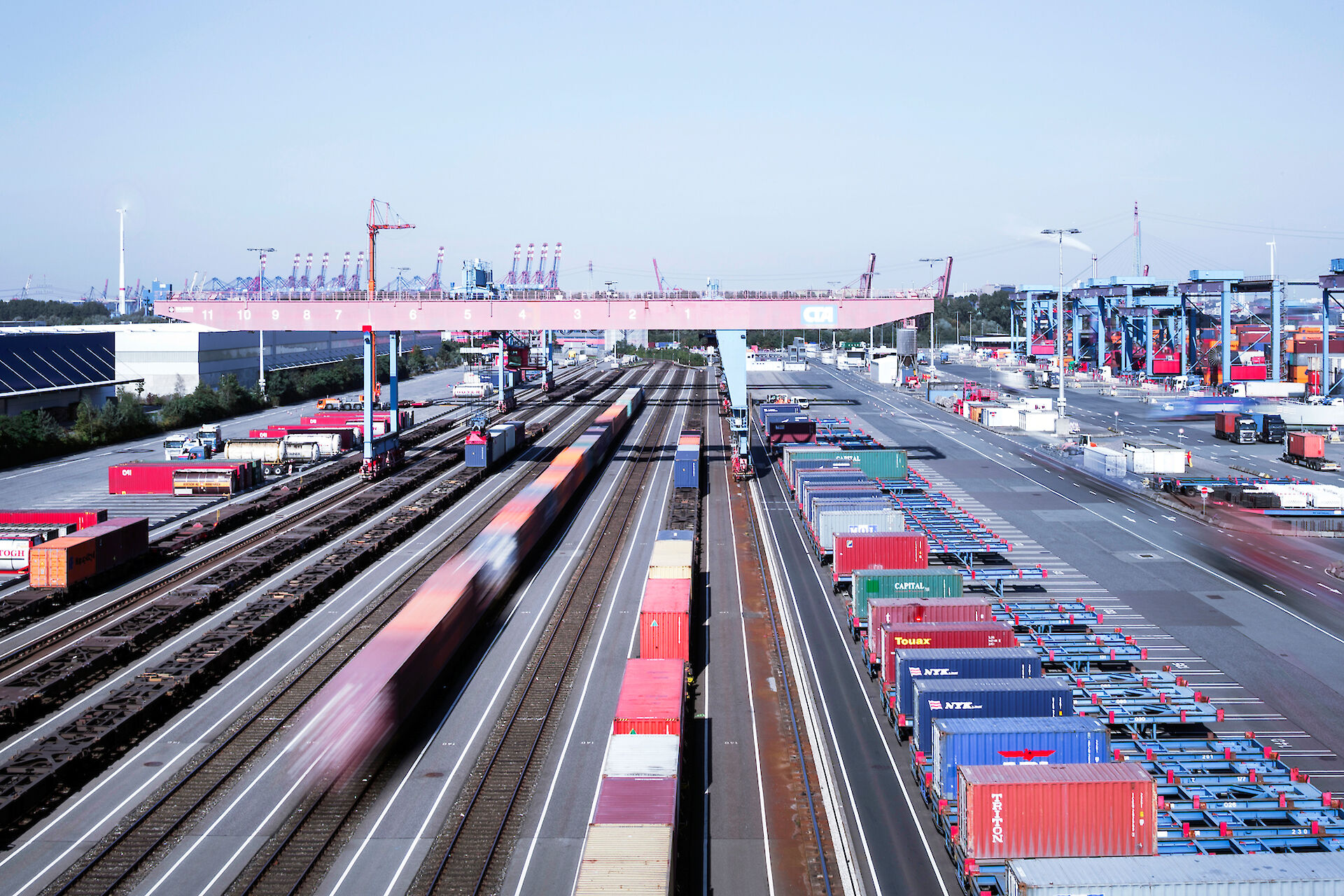29 Apr 2016 10:39
Hinterland
Hamburger Hafen und Logistik AG (HHLA) is expanding the rail terminal at its Container Terminal Altenwerder (CTA). The company is thereby responding to the ever-growing number of rail containers. The CTA’s rail terminal will have nine tracks in future, instead of the current seven. The expansion will increase the terminal’s capacity by 140,000 to 930,000 standard containers (TEU).
Since 2010, annual container throughput at the CTA rail terminal has risen by almost 20 percent to 769,000 TEU in 2015. This means that, once again, the CTA’s terminal had the highest throughput of any container rail terminal in Germany. Rail’s share of total container volume has also continued to grow in recent years. The German Federal Ministry of Transport expects that transport services of rail freight traffic will increase by 43 percent by 2030.
Dr. Stefan Behn, Executive Board member of Hamburger Hafen und Logistik AG, explains the construction project: “The expansion of the rail terminal will enable us to ensure the efficiency of the state-of-the-art HHLA Container Terminal Altenwerder. Once construction work has been completed, we will have two more tracks available, thereby allowing us to provide our customers with an even more attractive service. With this clear commitment to rail as a mode of transport, we are strengthening Hamburg as a rail port, and in the expansion of the rail terminal, too, we are continuing to focus on automation.”
The total area of the CTA’s rail terminal will be unaffected by the expansion, as the two additional tracks will be built on the existing area. This even increases the facility’s already efficient use of space. The distance between the tracks will become smaller, meaning that checking the container data will no longer be done, as before, by terminal staff who would drive along between the trains. For this reason, a so-called “train gate” had to be built. This train gate automatically records the container data on incoming trains as they enter the terminal. The automatic recording is quicker than the manual recording carried out previously, which means that the train handling operations can begin sooner. By no longer using the diesel-powered vehicles to check the trains, emissions of harmful CO2 at the already largely electrified CTA can also be further reduced.
Oliver Dux, Managing Director of the Container Terminal Altenwerder, emphasises: “When planning the reconstruction work, we paid particularly close attention to keeping the inevitable restrictions to handling to a minimum. In both stages of the expansion, we will have four tracks available. The six months planned for the construction work is ambitious, but we are nonetheless continually reviewing further possibilities for optimisation, in order to further shorten the construction period. We are also using a range of measures to optimise the utilisation of the existing capacities. We have been keeping our customers continually up to date on the construction activities for more than a year now.”
The expansion of the rail terminal began in early April, and construction is expected to last for six months.

